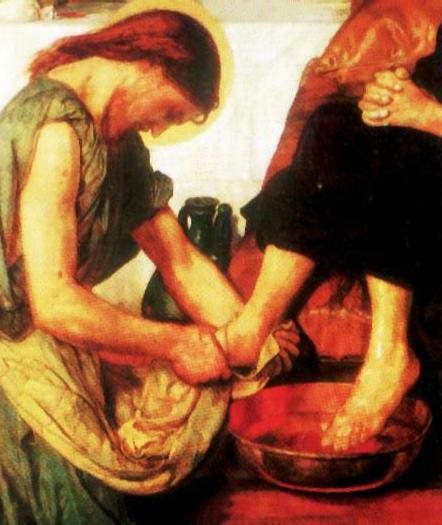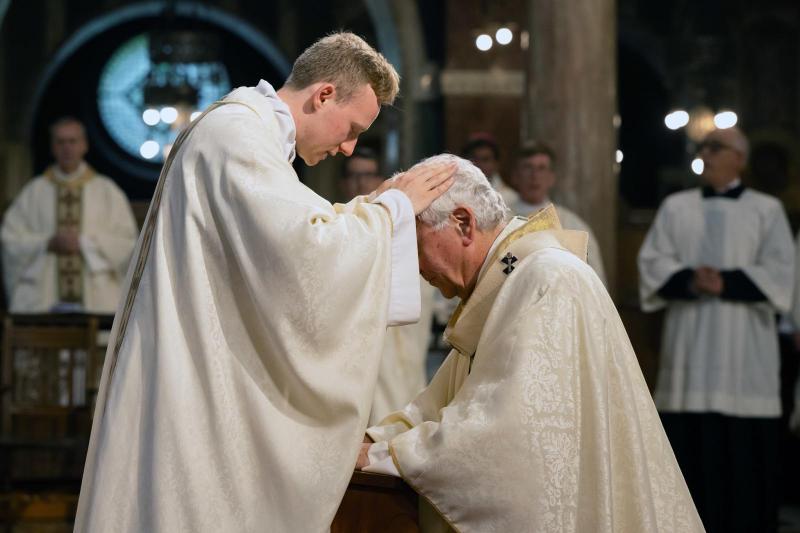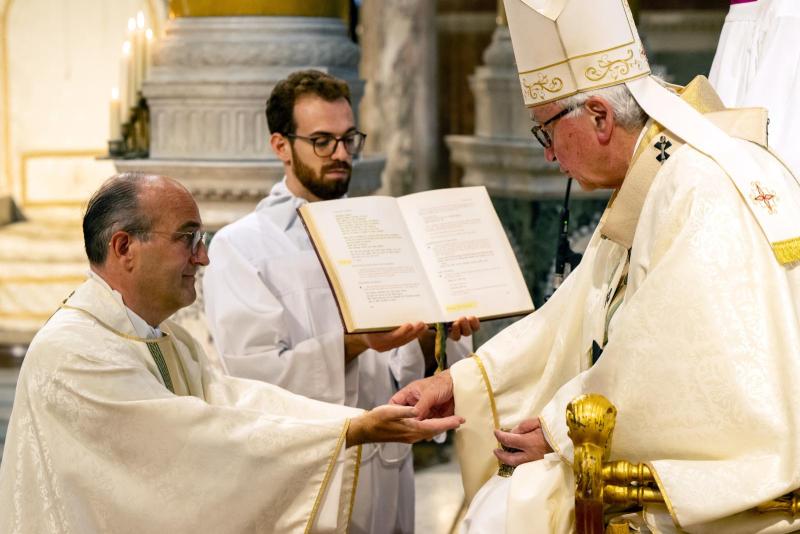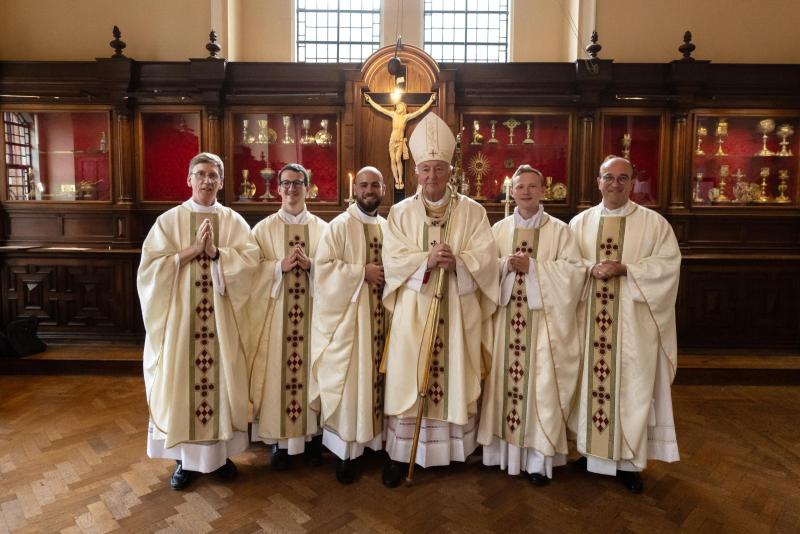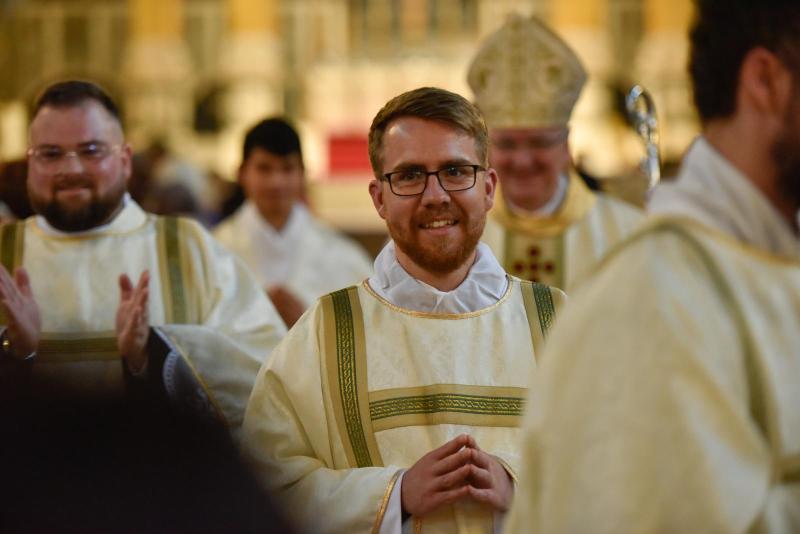This short article presents a summary of the nature of the diaconate and the work of the deacon, especially the permanent deacon. This ministry is to be understood in the following way:
a) The 'diakonia' of the Church is shown specifically in the Order of Deacons in two ways:
i) Firstly, the deacon embodies the truth that all ordained ministry in the Church is to be exercised as a service. Every priest and every bishop always remains a deacon, too. Everything a deacon does is to be characterised by this spirit of service. The model of service is Christ himself (Mk10: 43-45). The vocation of the deacon, then, is first of all to configure himself and his life to Christ the Servant and in doing so to give his life in service of the Church under the direction of the bishop. At the centre of his formation must be the task of forming a 'diaconal heart' so that he becomes a man who loves and serves the people with Christ's love. He is a "servant leader".
ii) Secondly, the deacon embodies, in a particular way, the ‘diakonia’ of service to those in need which, as has been stated, is a fundamental characteristic of the life of the Church. Indeed it can be said that the deacon, while not replacing the lay faithful or the ordained priest in anything that is proper to them, serves the faithful most evidently in the activities which express the 'diakonia', the service of the poor, of the entire Church.
In speaking of the work of the deacon, the Acts of the Apostles pinpointed the key characteristic of the leadership in service to be offered by them. The deacons were not merely carrying out a mechanical work of charity or distribution. They were men 'full of the Spirit and of wisdom'. (Acts 6:3)
In other words, the social service which they are meant to provide was absolutely concrete yet at the same time a spiritual service; theirs was a truly spiritual office which carried out an essential responsibility of the Church, namely, a well-ordered love of neighbour. With the formation of the group of seven, 'diakonia' - the ministry of charity exercised in a communitarian, orderly way - became part of the fundamental structure of the Church.
The deacon is the one who cooperates with the bishop and priest in directing the Church’s diaconal service to those in need. The ordained deacon has a particular task of inspiring, motivating and leading others in the work of meeting both the corporal and spiritual needs of the people.
'The deacon is the specific sacramental sign in the Church, of Christ the Servant. His role is to express the needs and the desires of the Christian communities and to be a driving force for service, or diakonia'.
b) Within the work of the Church, then, the deacon stands as the one who serves. This is true for every aspect of his ministry.
i) As a minister of the Word he will ensure that every work of service in the Church, especially the service of the poor, is rooted in and motivated by the love of Christ and his saving Word. His preaching will pay particular attention to forming and nurturing the diaconal nature of the Church. As a 'herald of the Gospel' he will respond to the environment in which he lives and works, bringing to it the challenge of the Gospel, and bringing the challenge of contemporary culture to his preaching. His will be the task of attempting to bring together the truths of the Gospel and the assumptions of the age, particularly as those assumptions are experienced in the world of work and secular activity. In his preaching he will show forth that 'wisdom in action' of which the Acts of the Apostles speaks (cf Acts 6:1-6).
work of service in the Church, especially the service of the poor, is rooted in and motivated by the love of Christ and his saving Word. His preaching will pay particular attention to forming and nurturing the diaconal nature of the Church. As a 'herald of the Gospel' he will respond to the environment in which he lives and works, bringing to it the challenge of the Gospel, and bringing the challenge of contemporary culture to his preaching. His will be the task of attempting to bring together the truths of the Gospel and the assumptions of the age, particularly as those assumptions are experienced in the world of work and secular activity. In his preaching he will show forth that 'wisdom in action' of which the Acts of the Apostles speaks (cf Acts 6:1-6).
ii) As a minister of the Altar he will demonstrate by his presence the servant nature of the Church, bringing forward the needs of the people in the Prayers of the Faithful, assisting in the distribution of Holy Communion, issuing the invitation at the end of Mass that all should 'love and serve the Lord' in each other and in those in need.
iii) As a minister of Charity he will stimulate and coordinate the work of charity in a manner that responds to contemporary needs, in response to the appointment he has received from the bishop and in cooperation with the parish priest(s).
In these ways the permanent deacon will be a permanent sign of the servant Church. Furthermore, in response to the circumstances of our day, in which the work of charity itself has been rendered secular, there is a particular emphasis to be given to the permanent deacon in developing the charitable work of the Church.
This article is taken from “The Permanent Diaconate in the Diocese of Westminster – A Handbook” (2009)
Published:
Last Updated:
